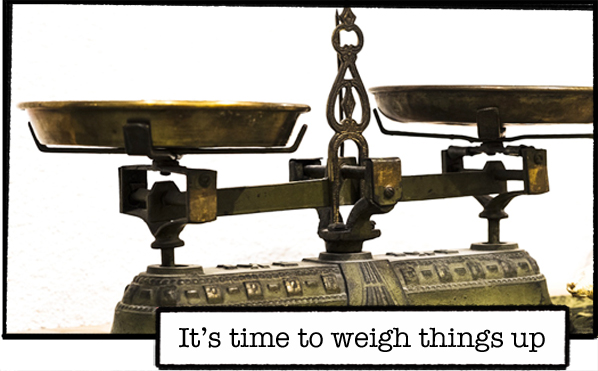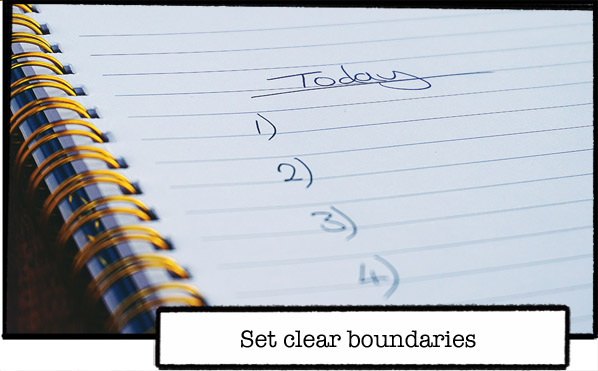Many things can affect how we feel about our jobs. I have both loved and hated my job in the same week – sometimes in the same day!
But if you’re feeling down or unhappy and have been feeling like this for some time, it’s hard to know whether you’re really falling out of love with your job or whether it’s just a rough patch.
Looking back on the reasons that help me decide I wasn’t in the right job, they vary pretty wildly:
- My boss was leaving and I didn’t want to work for his replacement
- I wasn’t challenged enough and the role was too monotonous
- I felt that I had both hit my ceiling in the organisation I was at and a new opportunity came my way that was very appealing
- I no longer felt aligned with the organisation and where it was heading
To help you figure out how you truly feel about your job and whether you should consider a change, I’ve put together a list of ten ways you can pinpoint exactly how you feel, why you feel that way and what you can do about it.
You & the Workplace
First, spend some time thinking about how your job makes you feel. It doesn’t matter if you work for the best organisation in the world if you don’t enjoy what you do.
1. How you talk about your job to other people
When someone asks you ‘what do you do’ how do you answer? If someone says that your job sounds great or interesting, do you agree? Or do you say it’s great, but you feel yourself cringe inside?
The language you use when you talk about your job with other people is a good indicator of your true feelings. If you’re not sure, ask your partner or your friends. Do they think you’re happy at work? Maybe you don’t realise how much you talk positively (or negatively) about what you do.
If you find yourself talking negatively about your job, ask yourself:
- Where does this bad feeling come from?
- How long have I been feeling like this?
- Am I just going through a bad patch?
2. The tasks that you do
When you think of a typical week (ok, in education there’s no such thing so let’s say a half term), how much of what you do, do you enjoy? When you think of doing the things you don’t enjoy, does it colour your view of your job or do you accept that every job has parts that aren’t satisfying? Consider the ratio of good parts to bad parts and how happy you are with that.
If you’ve found yourself in the position where most of what you do, you don’t enjoy, ask yourself:
- Has it always been this way?
- Is this a temporary situation and if so, when will it change?
- Is there anything that I can do to shift the balance?
3. What your days are like
Does the time fly, or do you find yourself constantly clock-watching? If you’re clock-watching, consider why that is. Are you struggling to concentrate? Are you behind on a deadline or are you just anxious for the day to be over already?
If the time flies, is it because you’ve got way too much to do or are you having fun?
Whether you’re strapped for time or are an avid clock-watcher, ask yourself:
- Is this how I like my working day to be?
- What changes can I make to my role or the way that I work to make this better for myself?
- Do I need to speak to someone about this to get some support and help me improve the situation?
4. Your work/life balance
How easy is it for you to switch off at the end of the day? Do you find yourself compromising family time to get work done at home? Do you find yourself getting in super early and staying as late as you can (i.e. until the caretaker kicks you out)?
Work/life balance isn’t a science. Everybody has different thresholds and mechanisms for managing their time and workload.
If your work/life balance isn’t what you’d like it to be, ask yourself:
- Is this a blip or has it become routine?
- What does a good work/life balance look like to me and what am I comfortable and not comfortable with about my current situation?
- Am I controlling my work schedule or is it controlling me? What can I do to address the balance?
5. Your plans for the future
When you think of the future, do you see yourself in the same job? Or do you see yourself in another job entirely? Have you outgrown your role or do you see that happening in the near future? Maybe you know that the job you’re in right now isn’t for you in the long term. But have you considered where you’ll go next?
Maybe you’ve got your eye on a promotion or maybe you’re waiting for a vacancy to come up in another organisation. Either way, having an eye on the future can help you address some of the issues that you have in the present.
If you’re not sure what the future holds and you’re feeling stuck, ask yourself:
- Do I want to carry on doing the job that I’m doing now and if so, for how long?
- Do I want to progress to another role in the future?
- Should I be planning to move to another organisation or can I continue/progress where I am?
The Workplace & You
Now spend some time thinking about your workplace. It might be that you have the best job in the world but you’re not sure if you’re working for the right organisation.
6. The values and culture of the organisation
When people ask where you work, are you proud to tell them? If someone asks you if they should apply for a job in your organisation, what do you say? Do the vision, mission and values of your organisation motivate you? What is it really like to work there?
Maybe it’s great, maybe it’s so-so or maybe it’s hell, no! Regardless, ask yourself:
- Does your organisation operate by its values or does it contradict itself?
- Does how I feel about my organisation impact on my feelings about my job or my capacity to do my job well?
- Do I really enjoy working there?
7. Your relationship with your Line Manager
Think about the interactions that you have with your Line Manager. Are they positive? Are they respectful? Does your Line Manager support you? How do you feel right before you’re due to go into a meeting with them?
Did you know that approximately 70% of people leave their job because they don’t have a good relationship with their direct line manager? That’s a pretty big number. Nobody is saying that you have to be BFFs but at a minimum, the relationship should be professional, respectful and supportive.
If you think your relationship with your line manager could be better, ask yourself:
- What are the specific issues that contribute to how I feel about my line manager?
- Would speaking to them about how I feel help to improve the situation?
- What action can I take to improve or mitigate the negative elements of this relationship?
8. Your relationships with your colleagues
Throughout the course of the working day, how many interactions do you have with your colleagues? Overall, are they positive or are they negative? Do you have colleagues that you can talk to about what’s going on at work? Do the people you work with treat each other well and with respect?
We spend so much of our waking time in the workplace that having nobody to talk to or working in a toxic environment can really impact on how we feel about our jobs.
If you think that your working relationships with your colleagues could be better, ask yourself:
- What is holding me back when it comes to building relationships with my colleagues?
- How can I improve these relationships?
- Do I have at least one trusted colleague that I can talk to about how I feel and give me some advice?
9. The opportunities that you have
Think about your job and the skills that you have. Does your job give you enough opportunity to use your top skills to best effect? How often do you feel challenged in your role? Is your organisation invested in your development and do they support you with appropriate CPD?
- What are my aspirations for myself and my role, both now and in the future?
- Does my organisation know what my aspirations are?
- Who do I need to speak to about how I’m feeling so I can be supported?
10. The way you are treated
Think about how your organisation treats you, as an employee. Are you treated fairly? Are you paid fairly? Do you feel secure in your job? If you have an issue, how is it dealt with? Is the value that you add to your organisation recognised?
If you work for an organisation that you don’t feel a part of and you’re worried that someone is plotting to get rid of you, then this will, of course, have a direct impact on how you feel about your job.
If you don’t feel that your organisation treats you the way that you deserve to be treated, ask yourself:
- Is it one incident or have there been many incidents that make me feel this way?
- Is it just me that feels this way or do others feel the same way that I do?
- Do I see this changing and if not, what am I going to do about it?
This blog is part of a series – to read my other posts about mapping your career path, choosing the right CPD, writing a stand-out application and how to make a good impression at interview, click here.
Like what you’ve read? Subscribe to this blog by clicking here.
P.S. Have you joined The Business of School Leadership Facebook Group yet? For practical support, advice, tips, tools & guidance about all things school leadership, join us in the community by clicking here.




